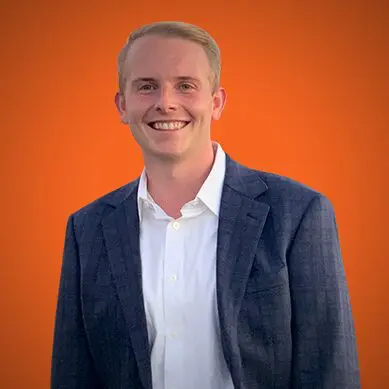Noah Triplett is a PhD candidate in Child Clinical Psychology at the University of Washington. He is a member of Health Policy Research Scholars Cohort 2020.
Tell us a little bit about yourself and what your research interests are.
I am particularly interested in leveraging community- and stakeholder-engaged research methods to improve access to evidence-based mental health interventions. I am also interested in examining how global health methods and approaches can be used to address mental health disparities in low-resourced settings in the United States.
What’s the story behind why you’re doing what you’re doing?
As someone from a rural community in North Carolina, I saw many of the effects of social and health inequities first hand. I was also privileged to have access to transformative education and opportunities to investigate innovative approaches to improve health equity around the globe. I am committed to using that privilege to improve the health and welfare of communities around the world, including rural communities like my own.
Tell us about a project you are currently working on that you are excited about.
My dissertation works alongside counselors and supervisors in Western Kenya to understand how mobile phones can be leveraged as a low-tech solution to address the mental health treatment gap. Together, we are working to understand how mobile phones are currently being used to supervise and support counselors, determine the acceptability and feasibility of that approach, and collaboratively generate solutions to improve the use of mobile phone supervision. I hope to generate knowledge that can be applied broadly, moving beyond one specific context to understand the potential of low-tech tools and the importance of end-user engagement around the globe.
For people unfamiliar with your research area, what is one piece of information you think is important for them to know?
There are tremendous lags in getting effective, evidence-based mental health treatments in settings where most people can access them. Despite increased attention to implementing these treatment strategies, communities and other stakeholders are often not engaged in implementation efforts. Increasing engagement with these folks is important not only for health and research equity but also to increase the likelihood that interventions are implemented successfully and sustained.
Who is a researcher you admire and why?
I admire Dr. Ana Baumann’s work because I feel that she brings a deep thoughtfulness to her work reducing racial and ethnic disparities in access and utilization of services to treatment and quality of care. She aims to work alongside communities and prioritizes equitable research.
How do you think HPRS will complement your doctoral training?
I feel HPRS will complement my doctoral training by providing training and guidance in health policy. I think policy is an important and often under-considered tool for increasing access to high-quality mental healthcare. As researchers, we are not typically trained to consider the role of policy in shaping mental healthcare or how to engage with policymakers to create evidence-informed policy.
What part(s) of HPRS excite you the most?
I am most excited about connecting with other like-minded scholars who can push my thinking and growth.
In the RWJF HPRS program we will work with you to help you think further about using your research to develop policy. If you could use your research to change any policy, what policy would it be?
I am interested in changing mental health provider licensing policy. I think universal licensing can be a powerful tool to increase access to care while also ensuring high-quality care is being provided.
Here’s a fun question to wrap things up. If you had a talk show, who would your first three guests be?
Easy. My first three talk show guests would be Britney Spears, Anthony Fauci, and Stacey Abrams. Each representing a different big part of my interests and values.

